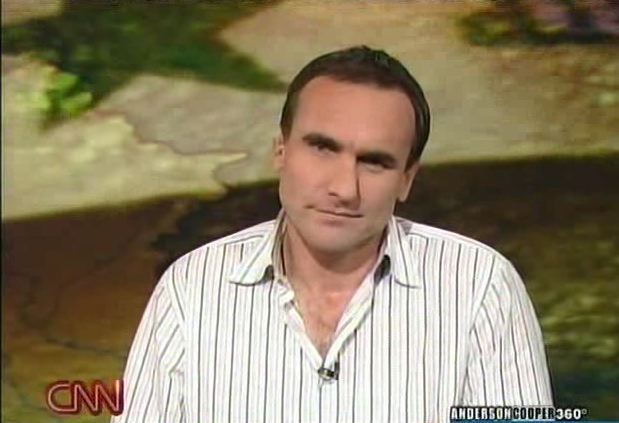AC: " 'Where's everything you promised us?' "

Click photo to play
Length: 5:03
ANDERSON COOPER: This is a staggering report. Eight of the reconstruction projects that this report examined -- the new reconstruction projects, the projects which had been touted as successes by the Bush administration -- eight of them; seven of them are not successes, seven of them are not working.
CNN's Michael Ware has covered the war for years now in Iraq. He tells it like it is. He joined me earlier from New York.
(BEGIN VIDEOTAPE)
COOPER: Michael, 104 U.S. troops have died so far in April, the sixth deadliest month of the war so far. And in the past six to seven months they have been especially deadly for U.S forces. Is this because the insurgents have shifted to once again targeting Americans instead of Iraqis? Or is it because of the change in U.S. tactics, Americans are just being exposed more?
MICHAEL WARE, CNN CORRESPONDENT: Well, Anderson, it's a little bit of both. There has been some kind of a shift, particularly amongst the Sunni insurgents, to refocus their attacks on American troops and Iraqi troops.
These homegrown guerrilla fighters are well aware of how unpopular al Qaeda's attacks against the civilian population are. And these homegrown fighters need that civilian population. Indeed, that's who they're fighting for.
So, yes, there has been some shift within some parts of the insurgency to refocus on U.S. forces.
But by and large, particularly this month, the main reason why we've seen such a dreadful spike is that essentially U.S. troops are out there much more. They're much more exposed. They're putting themselves back on the front line.
The concept of trying to push the Iraqis forward, to put an Iraqi face on this war has failed. It hasn't worked. So now, under the new strategy, under the new war commander, General David Petreaus, American troops and American Marines are being forced to step up and take on the fight themselves.
And don't forget, we're seeing U.S. troops not sheltering within their large combat bases or garrisons, as they have in the past. But now, we're seeing them break down into remote combat outposts that are very, very small, that are much juicier targets for the insurgents.
Even though these places are heavily defended, nonetheless, the American troops are much, much more exposed today.
COOPER: Michael, there's also a stunning report out by the inspector general for Iraq reconstruction -- at least I found it stunning. They sampled eight reconstruction projects that the U.S. had been saying were success stories, and they found that seven of them were not even functioning.
Now, the Bush administration has been saying all along, you know, the media isn't reporting success stories. Now it seems the success stories aren't success stories at all. Why are these projects failing?
WARE: Well, I have to tell you, Anderson, I mean, I can't say that I've personally seen one major successful reconstruction project. I mean, this is one of the greatest complaints of the ordinary Iraqi. Almost since the war began, but certainly in recent years they're saying, "Where is everything you promised us? Where are the things that we're supposed to be holding on for, that you're supposed to be fighting for?"
I mean, there's been untold corruption throughout the Iraqi administration. So the ability to harness the bureaucracy, to deliver any kind of aid, is crippled or nonexistent.
Also, you have a wealth of security concerns. It's so difficult to get an engineer to a project or to protect workers as they build something. And we've seen time and time again, every time the Americans or American funding refurbishes a school or repairs an oil pipeline, it's blown up in retaliation.
Anything seen to have been touched by the American or the occupier's hand is a target. So, this is absolutely devastating.
COOPER: And what's amazing about this report is even when it's not terrorism-related, when it's not insurgents attacking these things, it's, you know, multimillion dollar equipment just going unused, there not being enough spare parts. It doesn't seem like there's follow-up to these reconstruction projects even when they survive any attacks or interest by the insurgents. It's a stunning report. We'll talk more about it in the coming days.
Michael Ware, thanks a lot.
WARE: Thank you, Anderson.
(END VIDEOTAPE)
COOPER: Well, the violence in Iraq fueled a sharp increase in global terrorism last year. Here's the raw data just out today.
According to the State Department's annual report on terrorism, the bloodshed in Iraq accounted for nearly half of the 14,000 attacks in 2006. Iraq was also linked to two-thirds of the more than 20,000 terror-related deaths worldwide. The number of attacks rose more than 25 percent from 2005. And the number of deaths blamed on the attacks grew by about 40 percent.
